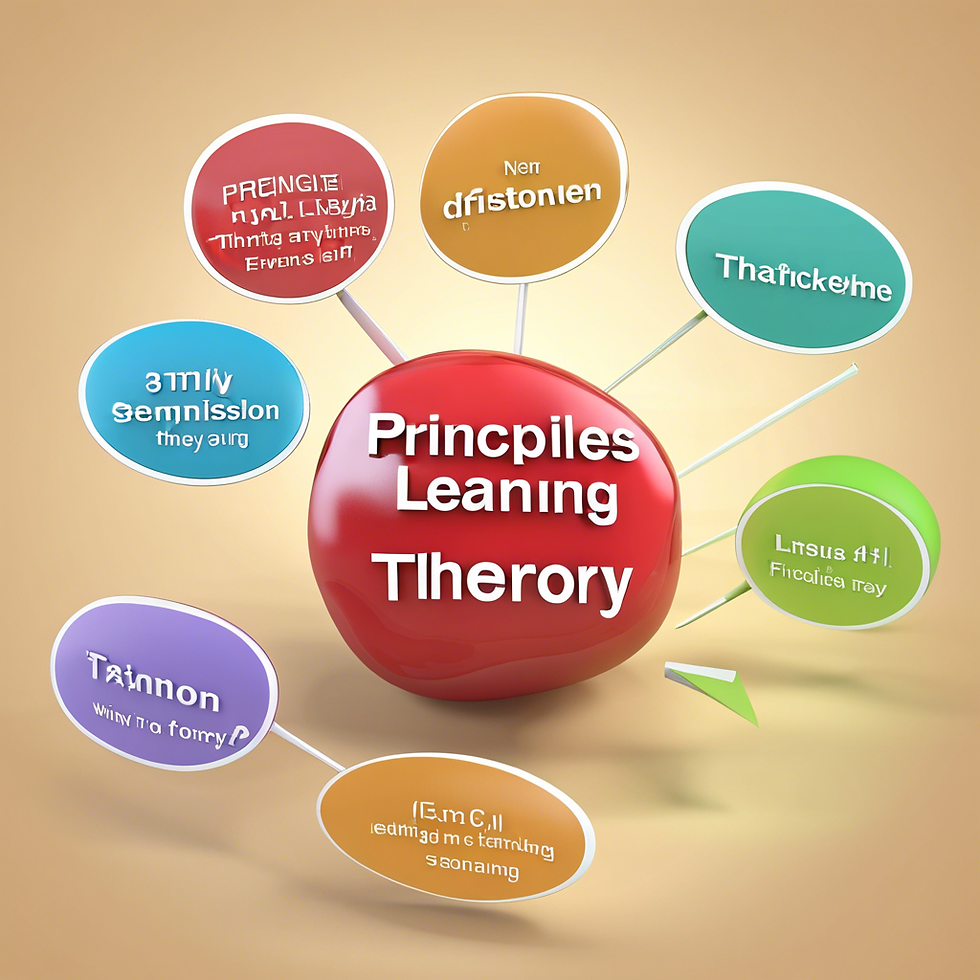
Principles of Learning Theory
- vedant patwa
- Jul 25, 2024
- 2 min read
### Principles of Learning Theory
Understanding and applying the principles of learning theory can significantly enhance the effectiveness of training and development programs within organizations. Here are the key principles of learning theory:
1. **Readiness**
- Learning is most effective when individuals are mentally and physically prepared to learn.
- Ensure that learners are motivated and see the relevance of the material.
2. **Exercise**
- Practice and repetition reinforce learning.
- Provide opportunities for learners to apply what they have learned through exercises, drills, or real-life applications.
3. **Effect**
- Positive reinforcement strengthens learning.
- Offer rewards and positive feedback to encourage desired behaviors and learning outcomes.
4. **Primacy**
- The first presentation of material often has a lasting impact.
- Present information correctly the first time to ensure accurate learning.
5. **Recency**
- The most recently learned material is often the best remembered.
- Regularly review and reinforce recent learning to ensure retention.
6. **Intensity**
- Vivid, dramatic, or exciting learning experiences are more likely to be retained.
- Use engaging and interactive methods to enhance the learning experience.
7. **Freedom**
- Individuals learn more effectively when they have the freedom to explore and make mistakes.
- Encourage a safe learning environment where learners can experiment without fear of negative consequences.
8. **Association**
- New learning is easier when it can be associated with previous knowledge or experiences.
- Relate new information to concepts that learners are already familiar with.
9. **Imitation**
- Learning can occur through observing and imitating others.
- Use role models, mentors, or demonstration methods to facilitate learning.
10. **Motivation**
- Learning is more effective when individuals are motivated.
- Understand and leverage intrinsic and extrinsic motivators to enhance learning.
11. **Feedback**
- Immediate and constructive feedback helps reinforce learning.
- Provide timely and specific feedback to guide learners and correct errors.
12. **Transfer**
- Learning is more useful when it can be applied in different contexts.
- Design learning experiences that promote the transfer of knowledge and skills to various situations.
13. **Active Participation**
- Active involvement in the learning process improves retention and understanding.
- Encourage learners to engage actively through discussions, hands-on activities, and collaborative projects.
14. **Goal Setting**
- Clear and attainable goals can enhance focus and motivation.
- Help learners set specific, measurable, achievable, relevant, and time-bound (SMART) goals.
15. **Adaptability**
- Flexibility in learning methods and materials can cater to different learning styles and needs.
- Adapt learning approaches to suit individual learners’ preferences and capabilities.
By incorporating these principles, organizations can create more effective and engaging learning environments that foster continuous development and improve overall performance.
















